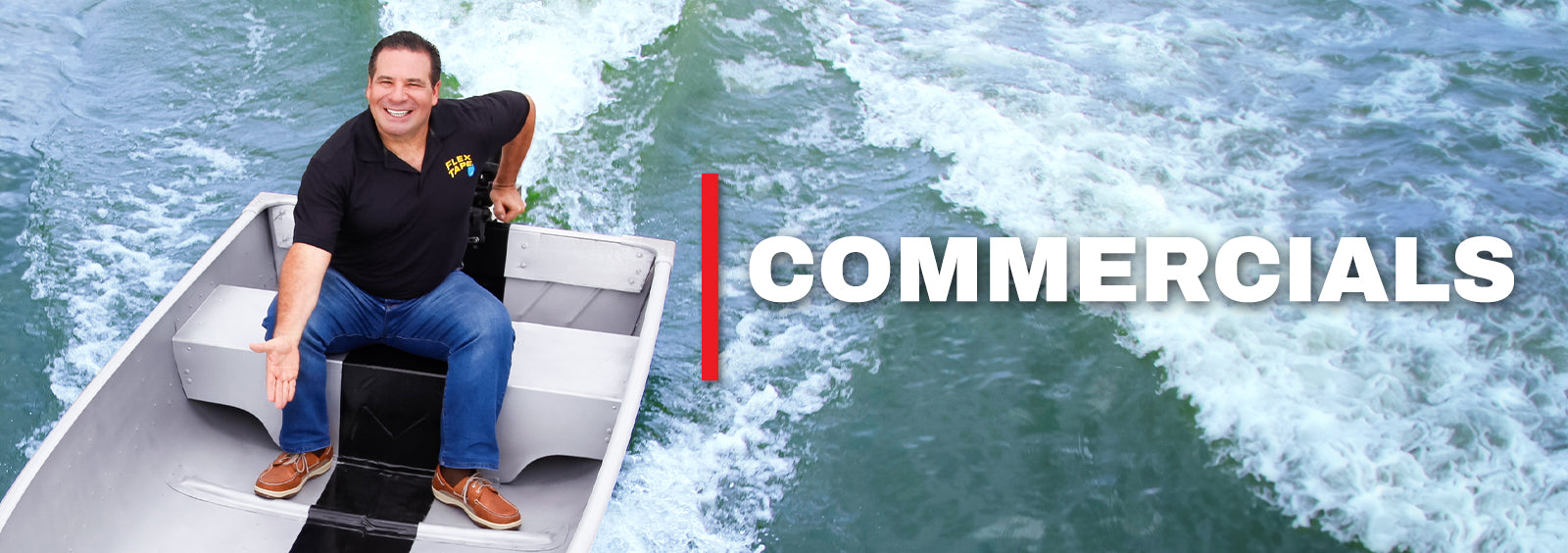How To Apply Flex Tape
New look, same powerful Flex Tape.
Flex Tape is a super-strong, waterproof tape with a thick, flexible rubberized backing that conforms to virtually any shape and surface, even underwater. This blog will show you how to properly apply Flex Tape to achieve the best results.

How To Apply Flex Tape
Important Information
Flex Tape may not adhere to certain surfaces, such as siliconized or water-repellent materials. It is only recommended for normal hydrostatic pressure and is not meant to withstand high pressure, such as pressurized pipes, garden hoses, or engine machinery.
Steps
1. Clean the Application Surface: Ensure the area is free of any grease, oil, dirt, or debris.
2. Cut the Tape: Keep the transparent backing on and cut Flex Tape using a razor blade or box cutter. The patch you cut should be larger than the area being repaired. You can also round the corners of the patch to help prevent the corners from lifting.
3. Peel off the Backing: Remove the backing and apply Flex Tape firmly over the area being sealed. For best results, apply Flex Tape to both sides of the repair. Once applied, Flex Tape cannot be repositioned.
4. Use Pressure: Press firmly using your fingers, squeegee, credit card, or roller, starting at the center and working towards the edges.
5. Smooth It Out: Make sure all water, air pockets, creases, and folds have been completely removed. These are areas where water could seep through and create a leak. Continue pressing firmly for one minute or longer to allow Flex Tape’s powerful adhesive to bond completely to the surface.
Helpful Information about Flex Tape

Compatible Surfaces
Flex Tape works on acrylic, metal, steel, copper, aluminium, wood, ceramic, porcelain, tile, glass, rubber, fiberglass, stucco, plaster, stone, cement, concrete, drywall, EPDM roofs, some plastics, fabrics, vinyls, and more.
Flex Tape may not work on some siliconized surfaces, greasy surfaces, water-repellent surfaces, or surfaces with harsh chemicals present (acids, mineral spirits, acetone, etc.).
Application Tips
Cutting Flex Tape: Use a razor blade instead of scissors whenever possible. After several cuts, the super-thick adhesive in Flex Tape may affect the scissors’ ability to cut. If you need to remove Flex Tape residue, our Flex Adhesive Remover can help.
Temperature Ranges: Flex Tape is best applied to surface temperatures from 20°F to 120°F and can withstand temperatures from -70°F to 200°F.
Bonding and Removal: Flex Tape will adhere to surfaces right away, but it gets stronger over time, so let it sit for 24 hours after application. Once applied, you can use a hair dryer on Flex Tape to increase the bond to porous surfaces, such as concrete. Once fully bonded, Flex Tape cannot be repositioned, so don’t try to move it and re-use it.
If you need to remove Flex Tape from a surface, use our Flex Adhesive Remover. For a removable and repositionable tape, check out Flex Super Wide Duct Tape.
Wet or Underwater Applications
For best results, make sure the area being sealed is clean and free of grease, oil, dirt, debris, or algae. Only use on smooth, clean, non-porous surfaces and apply at room temperature.
Using Flex Tape on Above-Ground Pools
If applying Flex Tape to a rip or hole in an above-ground pool, it is recommended to apply the tape to both the inside and outside of the damaged area when possible. Apply Flex Tape to the inside first, then place another piece on the exterior.
Using Flex Tape on a Hose
Flex Tape may not work with all hoses and is not recommended for applications with high water pressure, such as garden hoses or those in a car engine. However, it may work on low-pressure hoses. For best results, apply a small piece of tape over the hole, then wrap another larger piece of tape over the first layer. Add additional layers if needed.
If you have questions about Flex Tape, check out our FAQs or call our customer service team at (833) 411-3539.




















